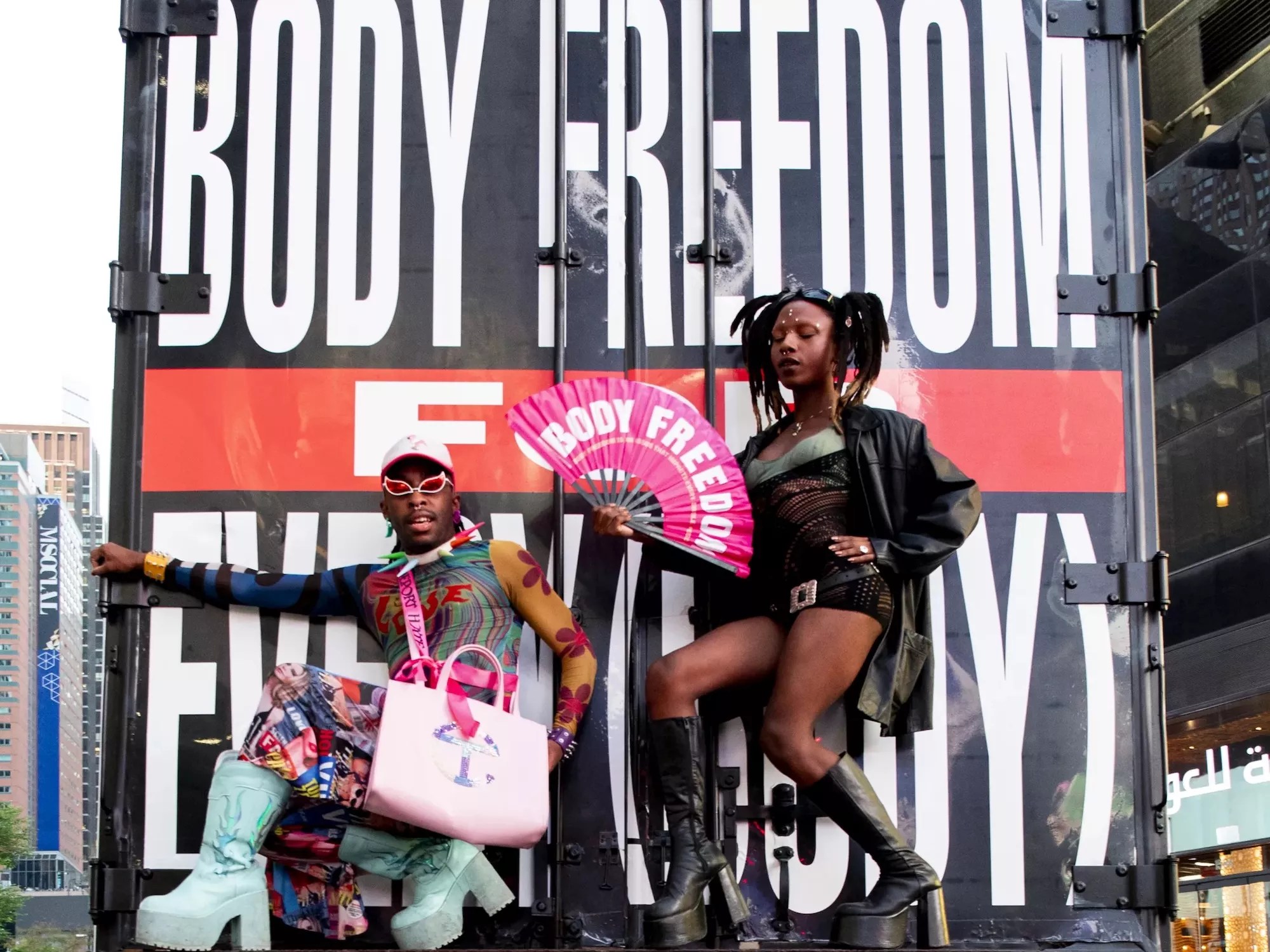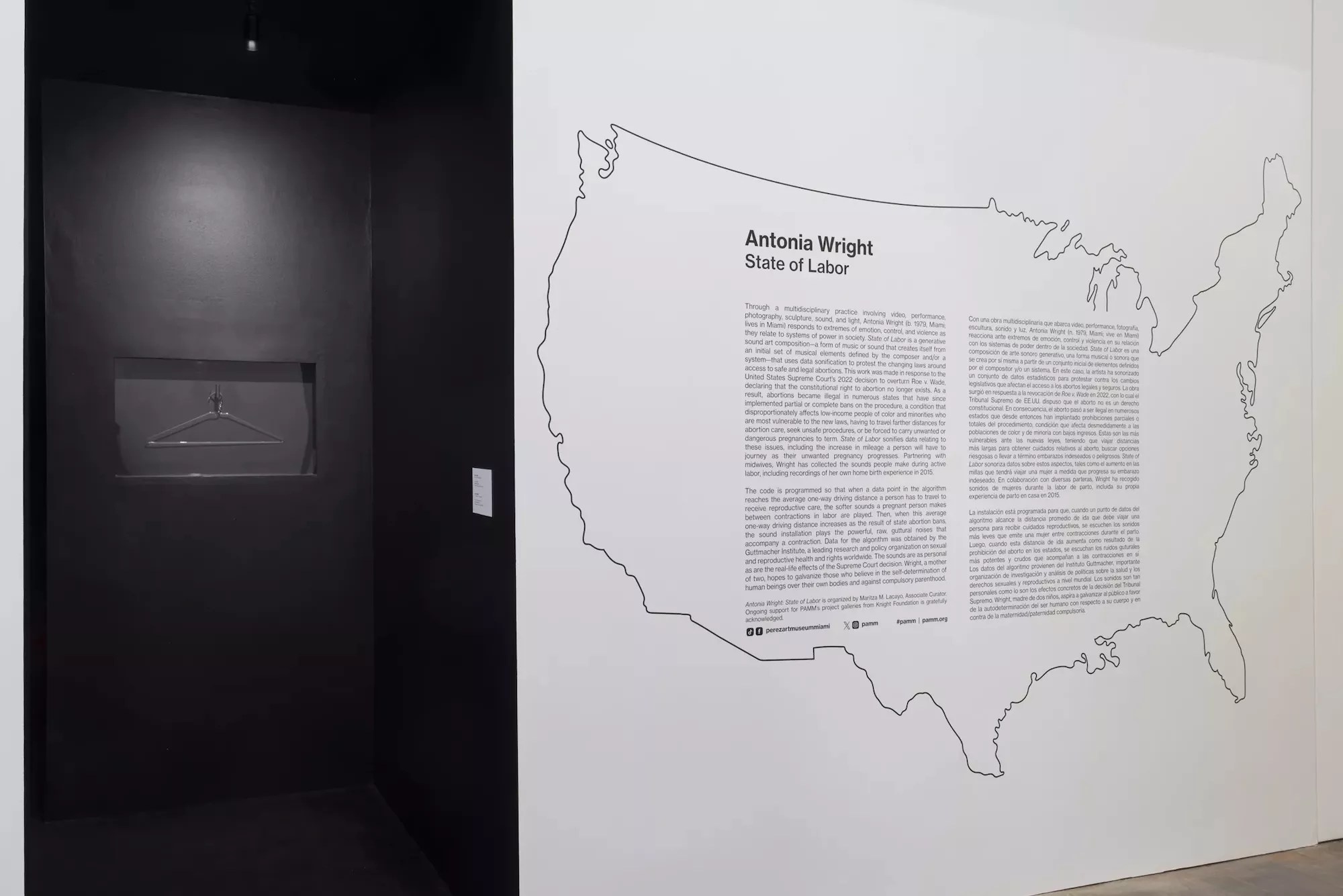
Photo by Carlos Hernandez

Audio By Carbonatix
Amid defiant and determined cries for freedom and equality at the 2016 Women’s March in Washington, D.C., artist Antonia Wright knew it was time to take action in the fight for reproductive health and rights. “I had this gut reaction: They’re going to overturn Roe v. Wade,” she recalls, referring to the U.S. Supreme Court ruling that protected the right to abortion – a safe and sometimes necessary way to end a pregnancy – across the country for nearly 50 years.
Her gut was correct. In 2022, the court overturned its landmark ruling, letting states ban some or all abortion care. Currently, 21 states have total bans or restrictions early in pregnancy. In Florida, abortion is illegal after six weeks of pregnancy – before many people know they’re pregnant – and a recent ballot initiative that aimed to protect abortion in the state’s Constitution failed despite the approval of 57 percent of voters.
Abortion, which the New York Times called an “art taboo” in 2022, is finally in the spotlight this Miami Art Week, offering women, in particular, a place to grieve and speak frankly about how to navigate life in a state where they’ve lost control over their own bodies. “If you force somebody to have a child when they don’t want to have it, you take away their autonomy for the rest of their life,” Wright observes.
A mother of two, she used her platform as an artist to create works that respond to the loss of her and others’ rights. Her installations, State of Labor and Hang-her, will be on display at Pérez Art Museum Miami (PAMM) alongside an upcoming traveling exhibition, “Body Freedom for Every(Body),” which addresses threats to the bodies of women and LGBTQ communities.
“Antonia uses her own body to create conversations around power, around violence against the body, and all sorts of feminist issues that have always been important but particularly in this moment,” says Maritza M. Lacayo, PAMM’s associate curator. The museum recently purchased State of Labor, a move that Wright calls powerful since many museums do not collect work on the topic despite the fact that one in four women in the U.S. will have an abortion in their lifetimes.
“Making abortion illegal doesn’t make it go away. It makes it unsafe, hard to access, and makes it so that people have to travel out of state,” Wright explains. That reality informed the sound installation State of Labor. Wright collected data on how far Floridians have to travel for abortion care with the research and policy organization Guttmacher Institute. Before Roe was overturned, Floridians only had to travel an average of 13 miles. After, it spiked to 583 miles. North Carolina is the closest state where it’s legal, and even there, only up to 13 weeks of pregnancy. She also partnered with her midwife, who recorded the sounds of her patients during childbirth. An algorithm creates a data sonification in which the data determines what you hear: Softer, lower sounds attune to the mileage before Roe v. Wade was overturned, and the more intense sounds relate to the current further distances desperate people have to travel to protect their bodies and health.

Antonia Wright’s sound installation, State of Labor, is on view at the Pérez Art Museum Miami through February 9, 2025.
Photo by Oriol Tarridas
State of Labor sparks personal and policy conversations, Lacayo says. “For some people, it’s an extremely difficult experience. I had the opportunity to tour someone who recently had a miscarriage. It was such a sad moment. She said, ‘I gave birth to a stillborn, and this is what I sounded like,'” shares Lacayo.
“People get very emotional in the space,” Wright adds. “Women get very vulnerable, and you hear them in a lot of pain.”
PAMM also borrowed and displayed Wright’s Hang-her, alluding to when women who sought illegal abortions used hangers to perform the procedure on themselves. It speaks to the way pregnant bodies are policed and how people who seek abortions are treated like criminals. Already, future and former President Donald Trump said, “There has to be some form of punishment” for women who have an abortion. Doctors are at great risk of facing arrest if they perform abortions in states with bans like Florida’s.
The museum will also host “Body Freedom for Every(Body),” an art exhibition by Newark-based, women-led arts organization Project for Empty Space on bodily autonomy that has been traveling the country since September in a truck wrapped by artist Barbara Kruger’s famous 1989 work Your Body Is a Battleground. The project, which includes work about abortion and LGBTQ and others’ rights, will be at PAMM on Sunday, December 8, in collaboration with artist membership collective Commissioner. Project for Empty Space founders and co-directors Jasmine Wahi and Rebecca Jampol curate the show based on states it visits. This show includes work by Miami artists Cornelius Tulloch, Coralina Rodriguez Meyer, Rachel Lee Hovnanian, and Florida native Terrell Villers.
They’ve had mostly positive responses to their truck on the cross-country drive, but “when we entered Florida, there was definitely a new climate that we ran into,” Jampol shares.
“We’re not known for doing things quietly,” Wahl adds.
They see the art on display as a way to spark discussions and support communities of people who will lose or have lost control over their rights and bodies. “It’s important that we come to Florida now,” Wahi says. “We know that there’s a huge community here. Many people in that community are rightfully angry and devastated. We need to figure out a way to persevere through this particular moment, and the entryway into that conversation is through the artwork we’re showing.”
Antonia Wright’s State of Labor. On view through February 9, 2025, at Pérez Art Museum Miami, 1103 Biscayne Blvd., Miami; 305-375-3000; pamm.org. Adults $18, under 6 free, seniors and youth $14.
Body Time by Body Freedom For Every(Body) x Commissioner. 1 to 3 p.m. Sunday, December 8, at Pérez Art Museum Miami, 1103 Biscayne Blvd., Miami; 305-375-3000; pamm.org. Admission is free with RSVP via pamm.org.